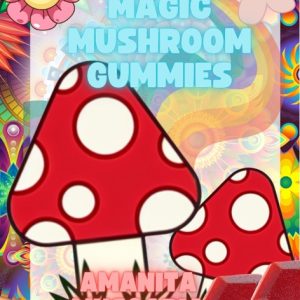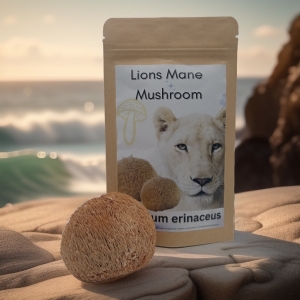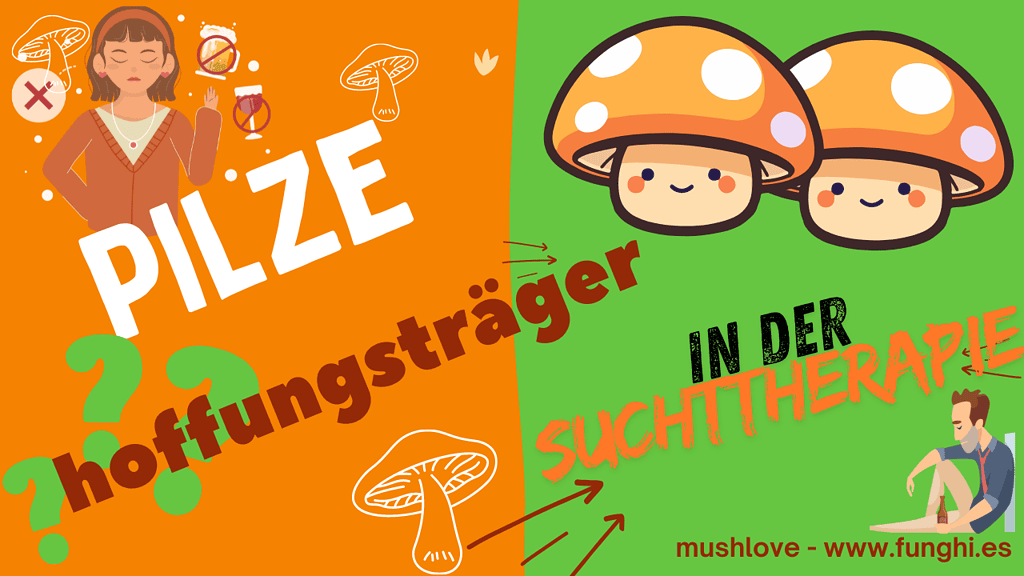How mushrooms could help in addiction therapy.
Insights into the fascinating world of mycotherapy
In a world that is constantly searching for innovative solutions to the challenges of addiction, a new chapter is opening up: the fascinating world of mushrooms in addiction therapy.
While conventional medicine continues to search for effective treatments, mushrooms are increasingly gaining importance as potential allies in the fight against addiction.
This article dives deep into the world of mycotherapy and highlights the promising possibilities offered by mushrooms such as Hericium, fly agaric and psilocybin-containing mushrooms such as Cubensis.
The power of mushrooms: beyond culinary delights
Mushrooms have been an integral part of human nutrition and culture for centuries.
But their importance goes far beyond culinary enjoyment.
Mushrooms play an important role in many traditional healing practices, and modern science is now beginning to explore their therapeutic potential.
From strengthening the immune system to improving cognitive function, mushrooms have a wide range of positive effects on human health.
Addiction: a complex challenge
Addiction is a complex disease that encompasses both physical and psychological aspects.
It can have a profound impact on the lives of those affected and their families and places an enormous burden on society.
The search for effective treatment methods is therefore of crucial importance.
Mushrooms as a beacon of hope in addiction therapy
In recent years, studies have shown that certain mushrooms have promising properties that could help in the treatment of addiction.
They can help to alleviate withdrawal symptoms, reduce cravings for addictive substances and improve mental health.
Hericium: the nerve food
Hericium, also known as lion’s mane, is a mushroom with remarkable neuroprotective properties.
It contains compounds that can promote the growth and regeneration of nerve cells.
This is particularly relevant in addiction therapy, as addictive substances often cause damage to the nervous system.
Hericium can help to repair this damage and improve brain function.
Fly agaric: a controversial ally
The fly agaric is a mushroom with a long history of ritual use and medicinal application.
It contains psychoactive substances that can cause mind-altering experiences.
In addiction therapy, the fly agaric is controversial due to its potential risks and side effects.
Nevertheless, there are indications that it can have positive effects under controlled conditions and in conjunction with psychotherapeutic support.
Psilocybin-containing mushrooms: a psychedelic key
Psilocybin-containing mushrooms, such as cubensis, have attracted a great deal of attention in recent years due to their potential therapeutic applications. Psilocybin is a psychoactive substance that can induce profound mystical experiences.
Studies have shown that psilocybin in combination with psychotherapy can be promising in the treatment of depression, anxiety disorders and addiction.
It can help to break deeply rooted behavioral patterns and open up new perspectives.
Benefits of mushrooms in addiction therapy
- Holistic approach: Mushrooms work on different levels and can address both physical and psychological aspects of addiction.
- Fewer side effects: Compared to many conventional medications, mushrooms often have fewer side effects and are therefore well tolerated.
- Lasting effect: Mushrooms can help bring about long-term changes in the brain and behavior, which can lead to lasting recovery.
- Supplement to psychotherapy: Mushrooms can enhance the effect of psychotherapy and accelerate the healing process.
The future of mycotherapy in addiction treatment
Research into the use of mushrooms in addiction therapy is still in its infancy, but the results so far are promising.
It is expected that further studies will be conducted in the coming years to better understand the potential of mushrooms in the treatment of addiction.
Important notes
- Always consult a doctor: Before using mushrooms to treat addiction, you should always consult a doctor.
Mushrooms can interact with other medications and are not suitable for everyone. - Controlled environment: Psychoactive mushrooms should always be taken in a controlled environment and under the supervision of an experienced therapist.
- Legal aspects: Find out about the legal regulations in your country regarding the possession and use of psychoactive mushrooms
Conclusion
Mushrooms open up new horizons in addiction therapy.
Their holistic effect, low side effects and potential for lasting change make them promising allies in the fight against addiction.
However, it is important to remember that mushrooms are not a miracle cure and should always be used in conjunction with comprehensive treatment and professional support.
The future of mycotherapy in addiction treatment is bright, and further research will help to unleash its full potential.
-
Product on sale
 Muscimol GummiesOriginal price was: 18,95 €.13,95 €Current price is: 13,95 €.
Muscimol GummiesOriginal price was: 18,95 €.13,95 €Current price is: 13,95 €. -
 Hericium organic powder 100 gr.23,95 €
Hericium organic powder 100 gr.23,95 €

